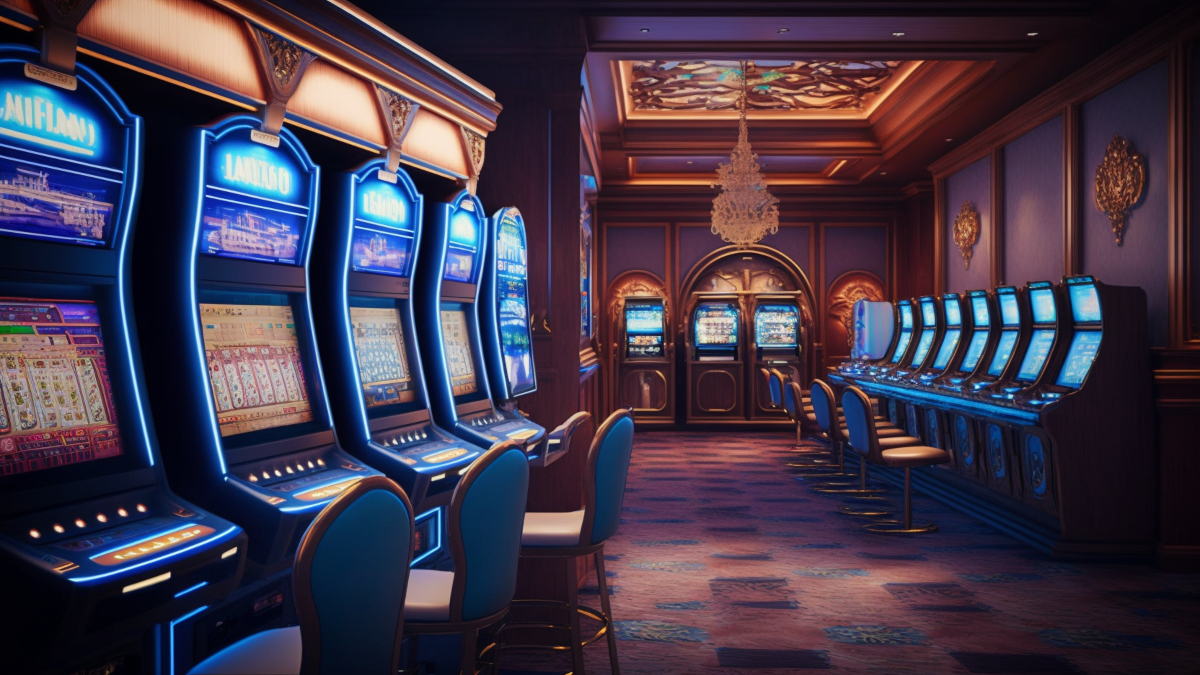
In the world of gambling, in which chance and strategy converge, a unique tapestry of beliefs manifests—one that braids luck, fate, and the enigmatic nature of casino games. Casinos, bustling with excitement and anticipation, are not just spaces for placing bets; they are also arenas in which superstitions thrive. Ranging from the novice player to the seasoned gambler, these mysterious practices often shape how individuals approach the games they play, believing that their actions can impact the outcome in ways that go beyond mere probability. https://jun88.wien/
When players gather around roulette wheels, blackjack tables, and slot machines, the atmosphere is thick with stories of lucky charms, rituals, and codified behavior that defy logic yet provide a sense of comfort. It could be the case that it’s wearing a specific outfit, following a particular sequence of bets, or even avoiding certain numbers, the attachment to various superstitions reflects a deep-rooted desire to master the uncontrollable. This article delves into the captivating world of casino game superstitions, exploring the beliefs that simultaneously entertain and mystify those who dare to play.
Historical Origins of Superstitions
Gambling games have long been entwined with an variety of superstitions that go back to primitive civilizations. The roots of these notions can be associated to humanity’s intrinsic need to influence the random outcomes associated with luck and uncertainty. In early civilizations, games of chance were often linked to religious practices. Gamblers would invoke aid or request favor from spirits, believing that their actions could influence the odds in their benefit. This foundation laid the groundwork for the multitude of superstitions that developed as casino games evolved over time.
During the medieval age, gambling became a popular hobby across the continent, and with it, a rich tapestry of superstitions appeared. Participants adopted various rituals and charms, believing they could change the consequences of games. The significance of digits, in particular, started to manifest in superstitions around card games and dice. The number 7 was often considered favorable, while various numbers carried bad connotations. These beliefs mirrored the social contexts of the time, evolving as they transferred through generations and transformed to different gaming environments.
As gambling houses developed in the 1600s, particularly in Italy and France, the atmosphere surrounding gambling became imbued in mystery. The growing openness of casino games allowed for the dissemination and diversification of superstitions among players. Concepts like lucky charms, specific seating arrangements, and rituals gained prevalence, creating a special culture within gambling establishments. As these practices continued to thrive, they became fundamental to the character of casino games, illustrating how the past and tradition shape the belief systems that influence how gamblers connect with luck.
Popular Gambling Myths
Superstitions surrounding casino activities are plentiful and diverse, mirroring the dreams and anxieties of players as they engage in random games. One of the most common beliefs is that certain digits bring luck or misfortune. For example, the number 7 is often seen as a lucky digit, frequently sought after by gamblers looking for a positive result. Conversely, the digit thirteen is routinely considered unlucky, leading many gamblers to steer clear of it during their gambling periods.
Another frequent belief relates to practices that gamblers believe can influence their chances. It could be blowing on dice before a roll, using a particular hand to place a wager, or even putting on specific items of attire, many individuals feel that these actions can sway fate in their benefit. These practices offer a feeling of power in an otherwise unpredictable environment, reinforcing the idea that fortune can be created through personal convictions and customs.
Finally, the environment and atmosphere of the casino itself contributes to superstition. Many gamblers suggest that the presence of specific icons, such as four-leaf clovers or lucky tokens, can enhance their chances of winning. Additionally, players might hold to the notion that winning streaks can be halted by mundane events, such as a person passing by or a accident at the table. The shared environment in a casino can amplify these superstitions, creating a shared culture of myths that transcends single encounters.
Impact of Superstitions on Players
Superstitions play a crucial role in the psychology of casino players, often affecting their actions and decision-making. Numerous gamblers think that luck can be manipulated through different rituals, such as donning a talisman, selecting specific colors, or steering clear of particular digits. This reliance on superstitions can create a sense of authority in an environment that is intrinsically unpredictable. Players often feel more confident and involved when they feel that their actions could sway the outcome of a game in their advantage.
The influence of these superstitions extends beyond individual players, affecting the overall atmosphere inside the casino. For example, a player who believes in the luck of a particular slot machine might draw a crowd, as onlookers are fascinated by their apparent luck. jun88 This collective belief can heighten excitement and create a lively environment, leading to an captivating experience even for those who may not necessarily be believers themselves. The buzz around specific games can lead to higher participation and longer playing sessions, supporting the casino’s vibrant social scene.
In some cases, superstitions can lead to negative effects for players. Relying too much on rituals can result in poor gambling decisions, as some may ignore basic strategies in favor of baseless beliefs. Additionally, the stress to perform rituals may increase anxiety and tension, diminishing from the enjoyment of the experience. Ultimately, while superstitions can enhance the excitement of playing casino games, they can also lead to foolish choices that overshadow the enjoyment and entertainment intended in the casino experience.